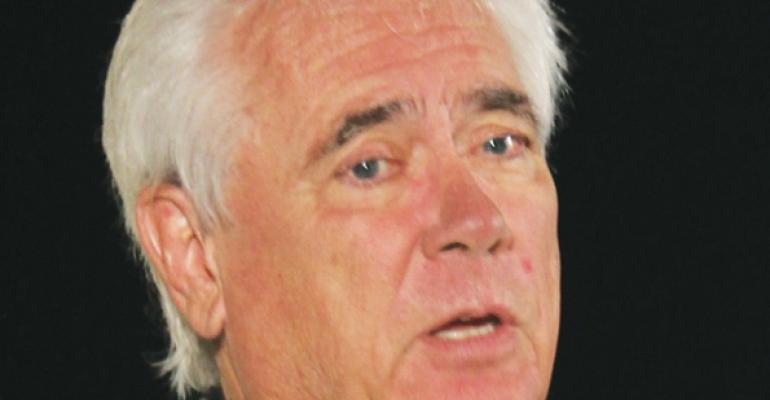While most foodservice operators would argue that they are loyal to their employees, Mike Mulligan knows they are not immune to organizing efforts.
Mulligan, co-owner of MikLin Enterprises Inc., an 11-unit Jimmy John’s Gourmet Sandwiches franchisee in the Minneapolis-Saint Paul area, said his company pays fair wages, promotes from within, has a diverse workforce and is close to its employees.
“But we didn’t see [the strike coming],” he said.
The action to unionize the franchisee by a group calling itself the Jimmy John’s Workers Union — which was affiliated with the Industrial Workers of the World — began in late 2010 when employees walked off the job, demanding higher wages and improved working conditions, including affordable health care, paid sick leave, and paid paternity and maternity leave. The JJWU also claimed that the owners and store managers interrogated union members and threatened them with retaliation.
Eventually, employees rejected the JJWU’s unionization efforts by a slim margin of 87 to 85, although a settlement was reached that allowed for a second vote to be held after a 60-day waiting period. Mulligan said, to date, the union has not filed for a second vote.
However, a group of employees continued to push for unionization in 2011, claiming they were entitled to paid sick leave. When MikLin declined to negotiate with the group, workers hung 3,000 posters around the area that showed two identical sandwiches side by side over a caption reading: “Your sandwich made by a healthy Jimmy John’s worker. Your sandwich made by a sick Jimmy John’s worker. Can you tell the difference?”
Mulligan met with his company’s counsel and determined that the ads had maligned the product. As a result, MikLin terminated six workers and issued warnings to three others. An administrative law judge, however, ruled against MikLin and recommended to the National Labor Relations Board and MikLin that the six workers be reinstated and paid back wages. The NLRB never ruled on the case, and the six workers were not reinstated.
Mulligan said the experience has been a frustrating one for him and his company, but the impact on customers and business has been slight.
However, he continued, “Whenever a business goes through a union-organizing effort, the impact falls mostly within the confines of the company. It polarized our team members because the campaign the IWW waged against my family and me became personal. It took all of the moral fiber that my family and managers had to endure the [unionizing] campaign.”
To help combat unionizing efforts, Mulligan advised:
• Establish well-defined employee policies that cover the entire company.
“I’ve always believed in having guidelines people must follow from store to store,” he said.
• Seek the assistance of a human resources professional — either on the staff or acting as a consultant.
• Maintain an open-door policy with employees, enabling them to discuss potential issues one-on-one with management.
• Treat people with dignity and respect.
“What we went through is a cautionary tale,” he said. “You must take responsibility to maintain a high level of communication, treat [employees] well, pay them fairly and be accessible to them. If employees like you and like working for you, and you do those things, you should not have anything to fear.”
Contact Paul Frumkin at [email protected].
Follow him on Twitter: @NRNPaul.





